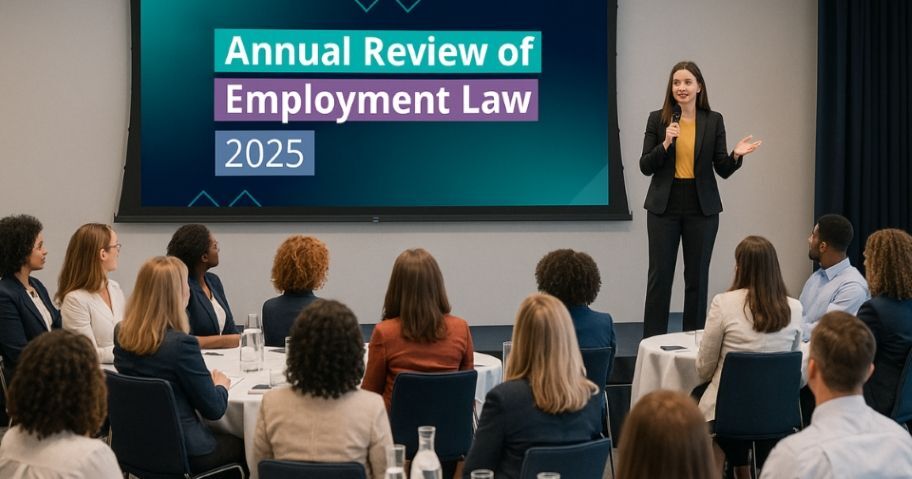
Fiona Stinson is a solicitor at A&L Goodbody LLP, Dublin. She works as part of the firm’s Employment Law Practice Group advising business clients on all aspects of Irish employment law, including both contentious and non-contentious matters.
Stay ahead of the curve with our exclusive Q&A series, brought to you by leading law firm A&L Goodbody LLP, designed to answer your most pressing legal questions. These expert insights provide clear guidance to ensure your HR practices remain compliant and protect your organisation.
In this Q&A, Fiona Stinson provides guidance on what to expect...
It’s been over a year since Ireland’s remote working legislation, the Work Life Balance and Miscellaneous Provisions Act 2023 (the Act) came into effect. Since its introduction, nine employee complaints under the Act have been decided on by the Workplace Relations Commission (the WRC ). Only one of these cases found in favour of the employee.
Remind me - what does the Act say about making remote working requests?
Under the Act, all employees have the right to request a remote working arrangement. Such requests must be in writing, be signed by the employee, specify details of the requested arrangement (e.g. duration and location), state the employee’s reasons for the request and be submitted to the employer at least eight weeks before the proposed start date.
While an employee can submit a request from their first day of employment, the Act provides that an employee must have at least six months’ continuous service before a remote working arrangement can begin.
The Employment (Contractual Retirement Ages) Bill 2025 published on 1 April 2025 introduces measures that allow, but do not compel, employees to stay in employment until the State pension age, regardless of whether there is a mandatory retirement age in place (the Bill).
Remind me - what does the Act say about responding to remote working requests?
Employers must consider remote working requests, having regard to (a) their own needs, (b) the employee’s needs, and (c) the requirements of this WRC Code of Practice (the Code ) which provides that employers should consider remote working requests in an objective, fair and reasonable manner.
The Act also stipulates the timeframes which an employer must adhere to when responding to remote working requests. As soon as practicable, and within four weeks of receiving a request, an employer must either (a) approve the request and provide the employee with a signed agreement setting out the details of the remote working arrangement, (b) refuse the request and provide reasons for the refusal, or (c) where the employer is having difficulty assessing the viability of the remote working request, they must notify the employee in writing that they are extending the deadline to respond by a further specified period not exceeding eight weeks.
Why have most of the complaints taken by employees under the Act to date been rejected by the WRC?
The Act itself provides that neither the WRC nor the Labour Court can assess the merits of an employer’s decision following consideration of an employee’s remote working request.
Last summer, in the first case taken under the Act ( Alina Karabko v TikTok Technology Ltd ), the complainant alleged that her employer had not considered her application for a fully remote working arrangement in accordance with the Act and the Code, specifically, that her employer had disregarded her needs when deciding on her request and had not considered her request in an objective, fair and reasonable manner. In its decision, the WRC confirmed that it is not empowered under the Act to investigate the merits of an employer’s decision and that its remit is strictly limited to assessing whether an employer considered a request in accordance with the requirements of the Act and the Code. The WRC found that the employer had complied with its obligations as it had considered the employee’s written request, met with the employee on a number of occasions to consider her request and had adhered to the timeframes for responses set out in the Act.
The same decision has been reached by the WRC in several other cases since then.
In Rafael Andrade Jorge v Centric Mental Health, the complainant, who had been working fully remotely from Kerry, made a complaint to the WRC when his employer required him to attend the office in Dublin once a month. In its decision, the WRC again noted that it is only the process followed by the employer in considering a remote working request that can be considered, not the merits of the decision. The WRC found that the employer had complied with the Act and the Code as it had considered the business’ needs and the employee’s needs and the outcome (which required the employee to attend the office one day per month) was a significant change to what the business would have preferred (attendance at the office two days per week) based on the needs of the employee.
In Zaurbek Musaev v TikTok Technology Limited, the complainant alleged that his employer had not treated a request for remote working in a lawful manner. The WRC found that there had been considerable engagement between the parties and again noted that once proper consideration is given to a request the employer’s statutory obligations are met.
Given the limitation on the WRC’s remit to assess the merits of an employer’s decision, from the employee’s perspective, the Act has been described as “toothless”. However, while the WRC may not be able to assess an employer’s decision-making process when considering remote working requests, the recent case of Thomas Farrell v Salesforce shows that the WRC may order an employer to compensate an employee where the employer has not adhered to the procedural obligations set out in the Act.
What happened in the Thomas Farrell v Salesforce case?
In April of this year, the WRC made its first award of compensation to an employee under the Act in the case of Thomas Farrell v Salesforce.
When Salesforce sought to implement its return-to-office policy, the complainant, who had previously been working fully remotely, submitted a request to continue doing so. His request highlighted several points, including the unsustainability of 550km daily round-trip commute and his demonstrated performance in a remote capacity.
The complainant was not informed that his employer required more time to consider his request until two days after the four-week period specified in the Act had lapsed. The employer’s substantive decision to refuse the request issued about two weeks later, stating the reasons for the refusal such as collaboration, the need for in-person meetings with hiring managers and alignment with the company’s hybrid working strategy.
The WRC highlighted that the only matter which it could consider in this case was the employer’s delay in providing an initial response to the complainant as the WRC could not consider matters which arose after the complaint had been referred to the WRC. The complainant’s claim had been submitted after his employer’s initial response to inform him that they required more time, but before he was provided with the substantive response. Noting that the employer had provided no compelling reason for the initial delay in responding, but also acknowledging the fact that the delay was minor, the WRC awarded €1,000 to the Complainant.
What are the key takeaways for employers from the recent WRC cases?
A number of cases that have come before the WRC since the Act came into force confirm that the WRC cannot look behind the merits of an employer’s decision regarding an employee’s remote working request; they can only look at the process which led to that decision. To meet their statutory obligations, employers should give proper consideration to remote working requests and ensure that they respond to employees in a timely manner and in accordance with the deadlines set out in the Act. Where an employer fails to do so, the WRC (or the Labour Court on appeal) can direct the employer to comply and/or order the employer to pay compensation not exceeding four weeks’ remuneration to the employee.
For further information in relation to this topic, please contact Fiona Stinson, Solicitor, or any member of the ALG Employment team.
A&L Goodbody LLP
Telephone: +35316492000
Website: www.algoodbody.com





